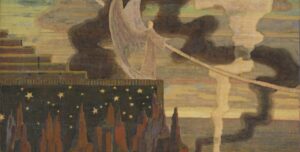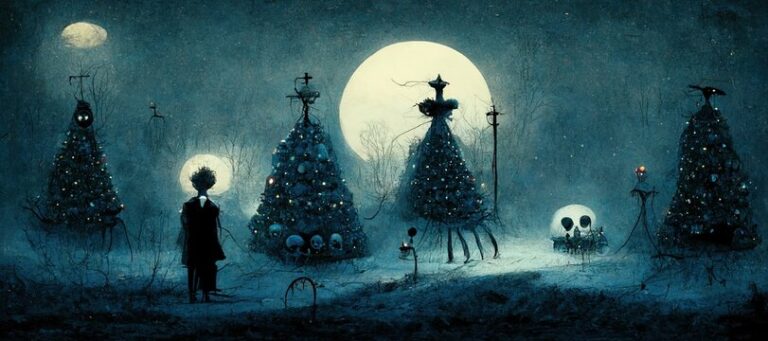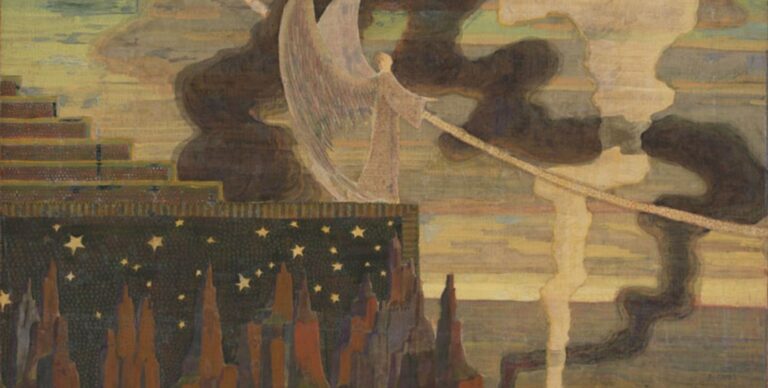Well, today we move to Japan and we meet a particular yōkai, the Yuki-onna (雪女) or “snow woman”. I found this particular story in a beautiful collection of Japanese tales illustrated by Kotaro Chiba.
This particular story is the one narrated by Patrick Lafcadio Hearn, also known with his Japanese acquired name Koizumi Yakumo, and tells the story of two woodcutters of the Musashi Province: Mosaku, an old man, and Minokichi, his young apprentice.
On a very cold evening, one winter day, the two miss their ferry because of a snowstorm and, since no one swims in a snowstorm, they find shelter in the boatman’s hut.
The hut is very small and there’s no place to make a fire but, fortunately enough, there’s no window. The two secure the door and lie down to sleep on the floor but the apprentice finds himself unable to sleep. Eventually, he’s awakened by a terrible roar, the door slams open and, in the yuki-akari (the snow lights for which a festival is held) he sees a woman dressed in white, bending over Mosaku and breathing thick smoke upon him. Which is almost never good.
The apprentice finds himself unable to scream and the woman turns to him. She gets very close and she’s a beautiful woman with scary eyes. Eventually, she speaks to him.
“I intended to treat you like the other man. But I cannot help feeling some pity for you, – because you are so young… You are a pretty boy, Minokichi; And I will not hurt you now. But, if you ever tell anybody – even your own mother – about what you have seen this night, I shall know it; And then I will kill you”.
She then releases him from her spell and walks out of the hut but, after locking the door again, he finds out that his master is dead and cold like ice.
The storm breaks at dawn and, when the ferryman comes back, he finds young Minokichi lying beside his dead master, an inch from his life. He stays ill for quite some time but says nothing about the woman. Eventually, he recovers and goes back to his usual trade.
The following year, he finds himself again on the road in winter and crosses paths with a slim good-looking girl who’s travelling the same path he is. She says her name is O-Yuki, which means Snow, and she claims to be an orphan headed for Yedo. Minokichi finds the girl to be very charming and she seems to enjoy his company as well: he takes her home to his mother and, since the mother likes her too, it’s a done deal. The two get married.
O-Yuki bears Minokichi ten handsome children, boys and girls, all very fair of skin. Everyone likes the girl.
One night, however, Minokichi sees his wife sewing at the light of a paper lamp and her white complexion makes him recall the deadly snow maiden.
“To see you sewing there, with the light on your face, makes me think of a strange thing that happened when I was a lad of eighteen. I then saw somebody as beautiful and white as you are now – indeed, she was very like you”.
Of course, it’s her. Will she kill the husband or not, now? Well, you’re going to have to dig up the tale to find that out.










1 Comment
Pingback:#AdventCalendar: following the #GothicAdvent initiative – Shelidon
Posted at 09:43h, 01 December[…] Throwback day. And today’s throwback is a Japanese tale of snow, love and treachery: the Yuki-Onna. […]